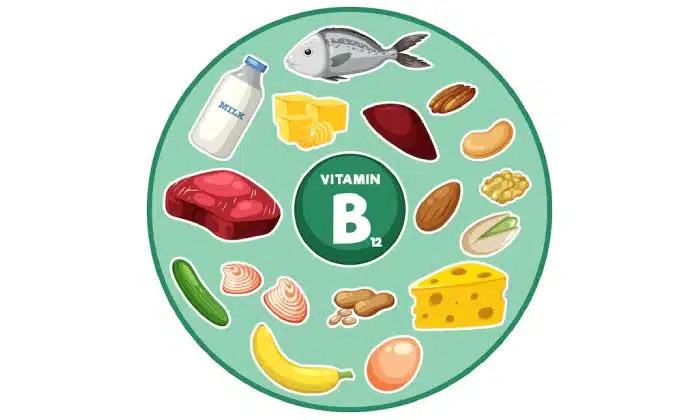At WellHealthOrganic.com, we emphasize the importance of a well-rounded diet for maintaining optimal health. One essential nutrient that often goes unnoticed is Vitamin B12. Known for its critical role in energy production and overall well-being, Vitamin B12 is a powerhouse vitamin that your body cannot do without. Let’s explore the benefits, sources, and practical tips for ensuring you get enough of this vital nutrient.
The Importance of Vitamin B12
Vitamin B12, also known as cobalamin, is a water-soluble vitamin that plays a crucial role in various bodily functions, including:
- Energy Production: Vitamin B12 is essential for converting food into energy. It helps in the metabolism of carbohydrates, fats, and proteins, providing the fuel your body needs to function effectively.
- Red Blood Cell Formation: This vitamin is vital for the production of healthy red blood cells, which transport oxygen throughout the body. A deficiency can lead to anemia, characterized by fatigue and weakness.
- Neurological Function: Vitamin B12 supports the health of the nervous system. It helps in the maintenance of myelin, the protective covering around nerves, ensuring proper nerve function and preventing neurological disorders.
- DNA Synthesis: B12 is crucial for DNA synthesis and repair, which is vital for the growth and development of cells.
- Mood Regulation: Adequate levels of Vitamin B12 are associated with better mood and mental health. Deficiency has been linked to mood disorders, including depression and anxiety.
Sources of Vitamin B12
Since Vitamin B12 is not produced by the body, it must be obtained from dietary sources or supplements. Here are some rich sources of Vitamin B12:
- Animal-Based Foods:
- Meat: Beef, pork, and lamb are excellent sources of B12.
- Poultry: Chicken and turkey provide a good amount of the vitamin.
- Fish and Shellfish: Salmon, trout, tuna, clams, and oysters are rich in B12.
- Dairy Products: Milk, cheese, and yogurt contain Vitamin B12.
- Eggs: Both the yolk and the white provide this essential vitamin.
- Fortified Foods:
- Plant-Based Milks: Some almond, soy, and rice milks are fortified with B12.
- Cereals: Certain breakfast cereals are fortified with B12, making them a good option for vegetarians and vegans.
- Supplements:
- Oral Supplements: Available in tablets, capsules, or liquid form, these are an effective way to ensure adequate intake, especially for those with dietary restrictions.
- Injections: For individuals with severe deficiency or absorption issues, Vitamin B12 injections can be administered by healthcare professionals.
Tips for Ensuring Adequate Vitamin B12 Intake
- Balanced Diet: Incorporate a variety of B12-rich foods into your daily meals to ensure you meet your nutritional needs.
- Monitor Intake: Vegetarians and vegans should pay special attention to their B12 intake, considering fortified foods or supplements to avoid deficiency.
- Regular Check-Ups: Regular blood tests can help monitor B12 levels, especially for older adults or those with conditions affecting absorption, like pernicious anemia or gastrointestinal disorders.
- Consult Healthcare Providers: If you suspect a deficiency or experience symptoms like fatigue, weakness, or neurological issues, consult with a healthcare provider for appropriate testing and supplementation.
Conclusion
Vitamin B12 is an indispensable nutrient that supports numerous bodily functions, from energy production to neurological health. Ensuring adequate intake through a balanced diet, fortified foods, or supplements is essential for maintaining overall health and well-being. At WellHealthOrganic.com, we are committed to providing you with the knowledge and resources you need to lead a healthy, vibrant life. Stay informed and make Vitamin B12 a key part of your nutritional regimen today!

